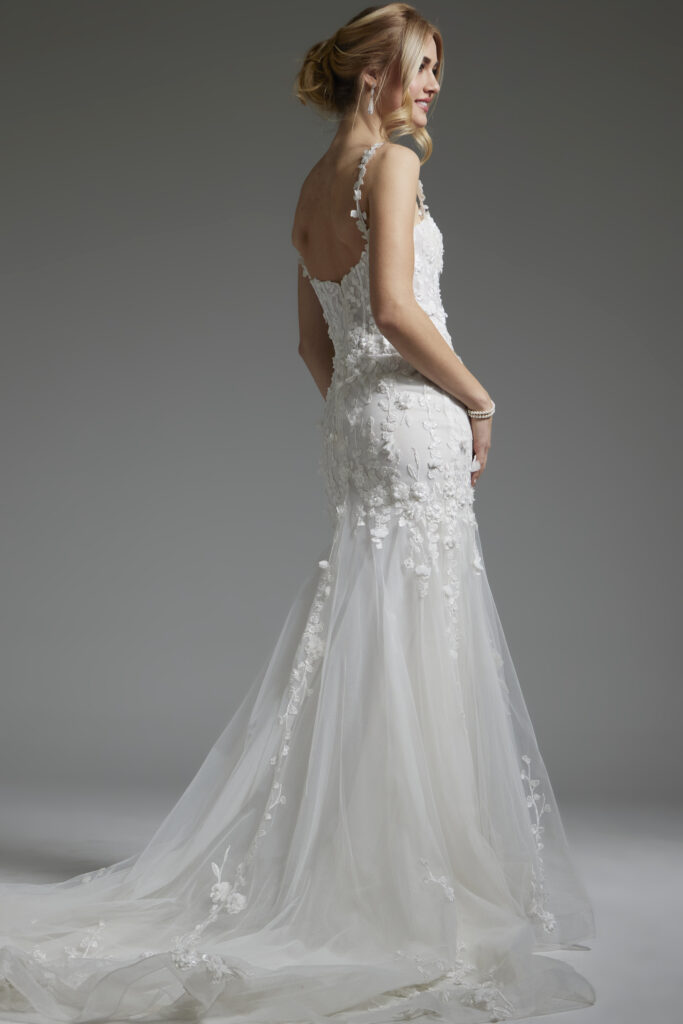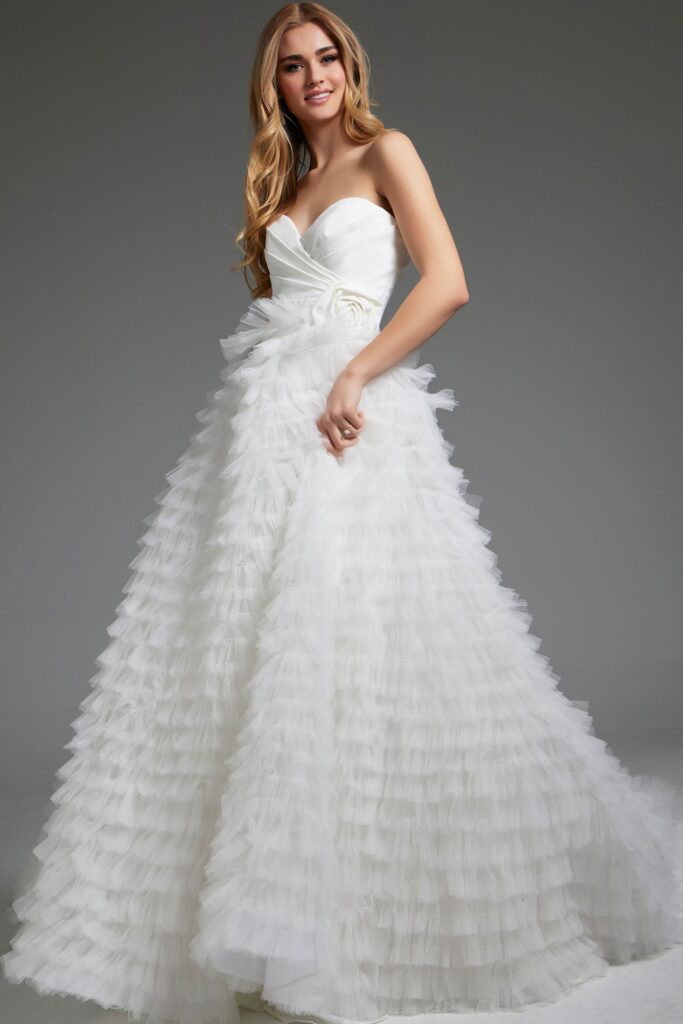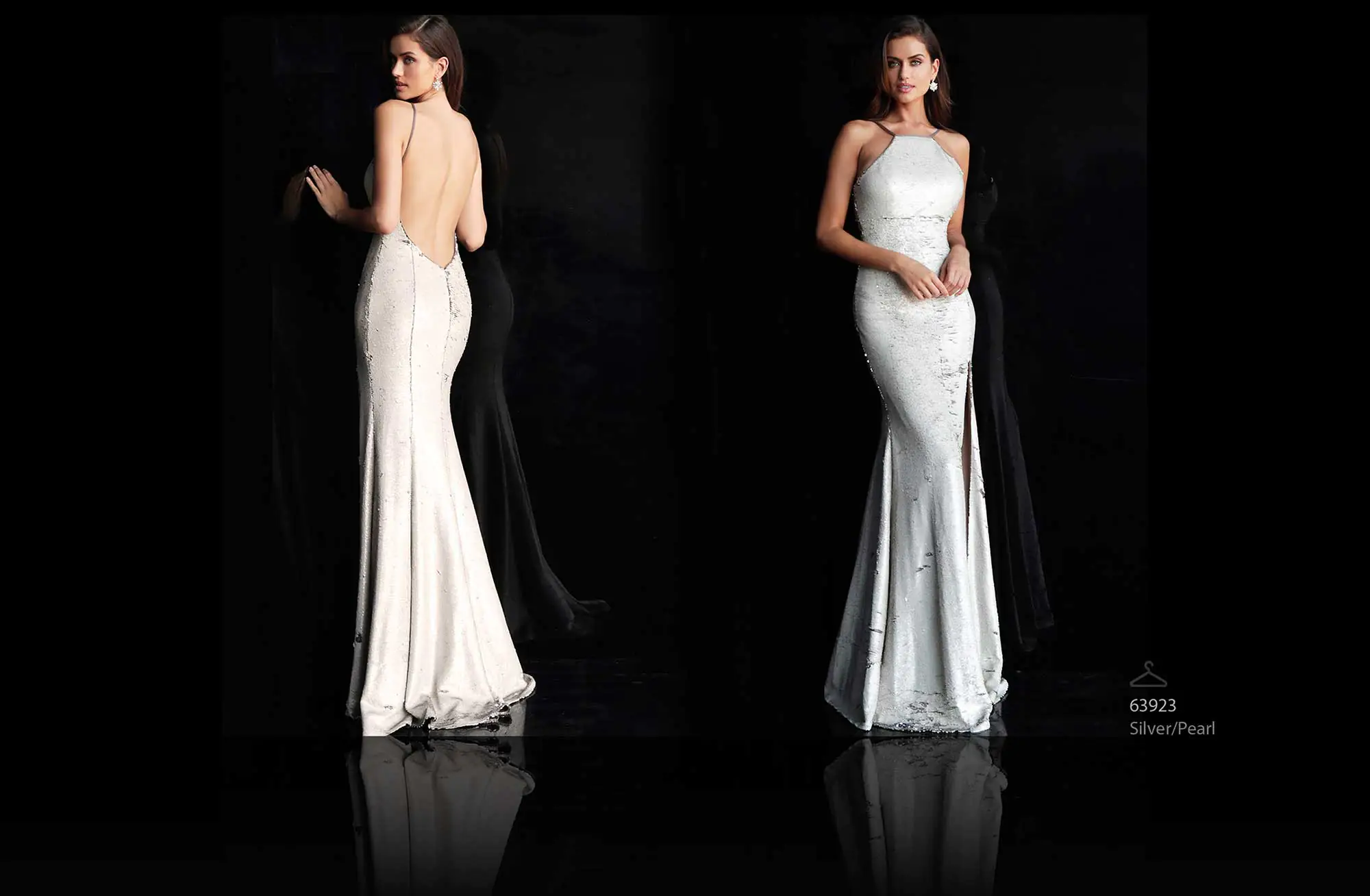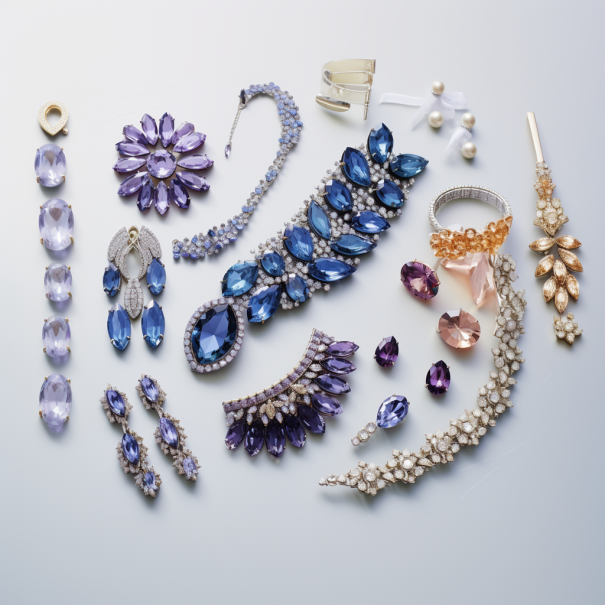- A First-Timer’s Guide to the Perfect Gala Dress - February 20, 2024
- How to Style Yellow Dresses for Every Occasion - February 12, 2024
- Exploring the Versatility of Brown Dresses: Casual to Formal Styles - February 11, 2024
Last updated 2 hours ago.
Saul Maslavi, Co-Founder of Jovani Fashions, a renowned wholesale distributor for prom dresses and evening gowns, celebrates 40 years of industry excellence. Jovani, recognized as both a designer and manufacturer, has dressed countless individuals, including celebrities and influencers, with their stunning special occasion dresses. Now, Jovani is taking a pioneering step in dress manufacturing by adopting carbon dioxide (CO2) dyeing technology. This innovative approach not only enhances their exquisite prom and evening dress collections but also reinforces Jovani’s dedication to sustainability. As a leading prom dress wholesale supplier, Jovani continues to set trends in prom fashion distribution while honoring its commitment to the environment. The
integrations of these new technological advancements allow the fashion industry to move
towards producing fabrics with a lower environmental footprint, promoting a more sustainable
and responsible approach to textile manufacturing while keeping an unmatched quality.
Traditionally, the textile industry heavily relies on water-intensive dyeing processes that
contribute to environmental degradation. Jovani Fashions is at the forefront of change by
adopting a revolutionary CO2 dyeing method. This innovative approach significantly reduces
water consumption, energy usage, and chemical waste during the dyeing process, aligning
Jovani with environmentally conscious practices.
Key Highlights of Jovani Fashions’ Green Initiative:
1. Sustainable Fabric Production: Jovani’s evening dresses now boast vibrant and
luxurious colors achieved through a sustainable CO2 dyeing process, minimizing the
environmental impact.
2. Water Conservation: By transitioning to CO2 dyeing, Jovani has substantially
decreased water usage in the production of their fabrics, contributing to the global effort to
conserve this precious resource.
3. Energy Efficiency: The carbon dioxide dyeing technology adopted by Jovani is not
only environmentally friendly but also significantly reduces energy consumption compared to
conventional dyeing methods.
4. Reduced Chemical Footprint: The new dyeing process minimizes the need for harsh
chemicals, leading to a notable reduction in chemical waste and promoting a cleaner, safer
production environment.
5. Commitment to Sustainability: Jovani Fashions reaffirms its dedication to sustainability
by embracing innovative technologies that contribute to a greener future for the fashion industry.
Retailers partnering with Jovani Fashions can now offer their customers exquisite evening
dresses that not only exemplify elegance and style but also reflect a commitment to
environmental responsibility. Join us in celebrating this milestone as Jovani Fashions continues
to lead the way in sustainable fashion, proving that glamour and eco-consciousness can coexist
seamlessly.
Looking for eco-friendly clothing options? It’s easier than you might think! Many brands are now making clothes in a way that’s better for our planet. These clothes are often made from recycled or natural materials that can be grown without harming the environment. Prom dress shopping is a rite of passage for many high school students, marking a significant milestone in their teenage years. Look for labels like “made from recycled materials” or “organic cotton.”
You can also look up the brand online to see if they discuss being eco-friendly on their website. It’s also a good idea to consider how the clothes are made. Clothes made to last a long time are often a better choice for the environment than clothes that are only meant to be worn a few times. So next time you go shopping, remember to look for eco-friendly options. You’ll be helping the planet and might find some cool clothes, too!
However, while many girls dream of finding the perfect dress, few consider the environmental impact of their purchase. The fashion industry is one of the largest polluters in the world, with fast fashion and textile waste contributing to the problem. As consumers, you can promote change by making sustainable choices. In this article, we will discuss how to find an eco-friendly prom dress and the importance of considering the entire life cycle of the dress, from production to disposal.
The fashion industry is a significant contributor to environmental pollution. Fast fashion, which produces inexpensive clothing intended to be worn only a few times, contributes substantially to textile waste. According to a study by the Ellen MacArthur Foundation, the fashion industry is responsible for 92 million tons of waste yearly. Additionally, the production of textiles requires large amounts of water and energy, and pesticides and other chemicals can lead to water and air pollution.
However, finding an eco-friendly prom dress is possible with the proper research and consideration. One option is looking for sustainable dresses, such as organic cotton, bamboo, and linen. These materials are grown without pesticides and are often more durable and longer-lasting than conventional fabrics. Another option is to look for vintage or second-hand prom dresses. This reduces textile waste and allows you to find a unique and one-of-a-kind dress.
It is important to remember that considering the entire life cycle of the dress, from production to disposal, is essential when making a sustainable choice. This includes not only the materials and production methods used but also the social and ethical impact of the dress, including fair labor practices. Additionally, it is crucial to consider the environmental impact of the dress, including materials, production, and disposal.
In conclusion, proper research and consideration make finding an eco-friendly prom dress possible. By making sustainable choices and considering the entire life cycle of the dress, from production to disposal, we can promote change within the fashion industry. Every small choice we make can have a significant impact on the environment. We, as consumers, need to be mindful of our favorites and make decisions that align with our values. With creativity and resourcefulness, we can find a beautiful and sustainable prom dress that will make us feel confident and stylish on prom night.
Fashion companies can launch various campaigns to boost eco-friendly product production. Here are a few ideas:
-
Eco-Friendly Product Line Launch: Introduce a new product line that uses only environmentally friendly materials and manufacturing processes. Advertise this line prominently and educate consumers about the benefits of these products.
-
Recycling Campaign: Encourage consumers to recycle their old clothes with a campaign like “Recycle and Revive.” Offer discounts to customers who bring in their old garments to be recycled.
-
Sustainability Education: Run a campaign that educates customers about the importance of sustainability in fashion. This could be a series of blog posts, social media updates, or even a dedicated website section that provides information about eco-friendly materials, processes, and the impact of fashion on the environment.
-
Charity Partnerships: Partner with environmental charities and pledge a certain percentage of sales from the eco-friendly line to these organizations. This boosts productivity and creates a positive image for the company.
-
Carbon Offset Campaign: For every purchase made, the company can pledge to offset a certain amount of carbon emissions. This can be done by investing in renewable energy projects or tree-planting initiatives.
-
Green Challenges: Encourage customers to participate in “green challenges,” such as committing to buy only sustainable clothing for a year. Provide resources and support to help them achieve this goal.
Remember, any campaign must be genuine and backed by real action to be successful. Empty promises can lead to negative publicity and damage a company’s reputation.
Several fashion companies have initiated eco-friendly campaigns to boost sustainability. Some notable examples include:
-
H&M’s Conscious Collection: H&M launched the Conscious Collection, which uses recycled or more sustainable materials, such as organic cotton, recycled polyester, and TENCEL™. They also have a “Garment Collecting” program, where customers can drop off unwanted clothes (of any brand) in stores to be recycled.
-
Patagonia’s “Worn Wear”: Patagonia encourages customers to repair, reuse, and recycle their products. Their “Worn Wear” program buys back used Patagonia gear in exchange for store credit, which is then repaired and resold at a discounted price.
-
Stella McCartney’s “Meat Free Monday”: Besides being a pioneer in sustainable luxury fashion, Stella McCartney launched the “Meat Free Monday” campaign, advocating for reducing meat consumption to help combat climate change.
-
Everlane’s “Radical Transparency”: Everlane shares each product’s true cost, production process, and commitment to using recycled materials and ethical factories.
-
Reformation’s Carbon Offsets: Reformation makes sustainable women’s clothing and accessories, and they invest in programs that replace the resources they’ve spent and offset their carbon emissions.
Jovani is on a mission to make fashion more eco-friendly. They understand that fashion doesn’t have to come at the expense of our planet. To achieve this, they are taking steps to improve their production methods. Jovani is focusing on using materials that are kinder to the environment, such as organic cotton and recycled fabrics. They’re also working hard to ensure their clothes are high quality so they last longer and don’t need to be replaced as often. Plus, they constantly research and learn new ways to be even more eco-friendly. This shows that Jovani is not just about creating beautiful clothes but also about caring for our planet.
For those shopping with budget constraints, our ‘Prom Dress Shopping on a Budget‘ article offers valuable tips.
This bridal fashion week, Jovani debuted its 2025 bridal collection on the 76th floor of the iconic Empire State Building. The breathtaking, 360 degree views of the Manhattan skyline were the perfect backdrop for this bridal viewing which showcased sleek, modern sophistication in luxurious fabrics and dramatic silhouettes.


At Jovani’s bridal viewing, the brand once again, proved their dedication to innovation and progress in the fashion industry by unveiling a special collection within their bridal line. These cutting edge designs are made completely out of sustainable, eco-friendly fabrics! These gowns are fabricated with gorgeous satins, mikados, and luxurious crepes that draped beautifully and created voluminous, full skirts. Though these fabrics are synthesized from 100% recycled materials, Jovani did not sacrifice the high quality or beauty that their gowns are known for.
In recent years, there has been more discourse about the impact of the fashion industry on the planet. Fashion production is one of the largest contributors to carbon emission and water waste globally. Specifically, the production of synthetic fibers, such as polyester, is notably more detrimental to the environment and uses a substantial amount of resources and energy. The fast fashion industry has been accelerating the damage to the environment due to their rapid rate and mass quantities of production. As a prominent voice in the evening and occasion wear market, Jovani is doing their part to make a change and set the tone for the future of bridal fashion.
After years of research and development, Jovani has partnered with a manufacturer that developed the incredible, innovative technology which made our sustainable collection possible. Not only does this process create fabrics using more ethical practices, but it also reduces waste and plastics entering our landfills by transforming discarded water bottles into gorgeous bridal fabrics. This process begins by thoroughly cleaning plastic bottles and sorting parts to eliminate any other materials. The plastic is then dried so it becomes brittle, at which point it is cut into fine pieces and grinded down into a powder-like consistency. At this stage, the plastic is heated to its melting point which binds it together into a new, honey-like substance. In this viscous state, the plastic is extruded through spinnerets which creates fine, individual filaments that mimic the fibers that are woven into yarns in the traditional fabric production process. These filaments are then winded onto spools for weaving. These recycled filaments and yarns can be woven into the beautiful satins, mikados, and crepes that you’ll see throughout Jovani’s 2025 bridal collection.
Jovani’s bridal presentation also featured a number of breathtaking couture bridal gowns. In recent years, Jovani’s couture line has grown in popularity and these in demand styles are being spotted everywhere from pageant stages to red carpets, galas and high end weddings, and everywhere in between. The couture collection follows a slow-fashion production model, as these pieces are one of a kind and made to order. This ensures that there is minimal waste at every step of the process because the manufacturer only orders the amount of materials they’ll need to make each dress. Jovani is fully embracing this style of manufacturing when it comes to their couture line because they recognize that special occasion gowns typically don’t get many wears. This makes it even more important to implement low waste and eco friendly practices in the production of these pieces.
A woman’s wedding dress is the most important garment she’ll likely wear in her lifetime. Choosing a dress that’s designed and made sustainably will make our 2025 brides feel confident on their wedding day, knowing that they’re giving back to the planet by making a small choice with a big impact.
Back to Main Hub



